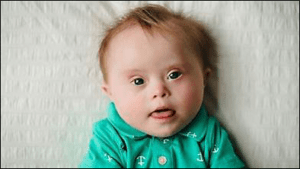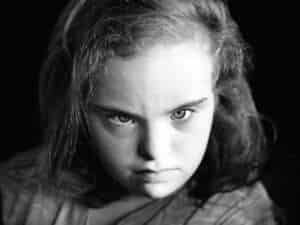Understanding Down Syndrome in Children
- Dr Owais Rafiq
- August 12, 2024
- 6:47 am

Understanding Down syndrome, its causes, symptoms, and diagnosis:
Parents who have little kids always pray for a healthy and perfect child while they are pregnant. However, nature and biology work in strange ways and humans have no say in the genetic makeup of their little ones whom they love the most. Unfortunately, some babies are born with a special genetic condition that results in a slight change in their physical appearance and also causes some developmental issues. The condition was first described by a doctor named John Langdon Down. He was an English doctor who published about Down syndrome in the 1860s, therefore it was named after Dr. John Langdon Down. There are so many kids, teenagers, and adults who live a happy life with this condition. Reports say that 1 in every 700 newborns have this condition in the US. The statistics show that Down syndrome in children is quite common nowadays.

All kids with Down syndrome are not alike. Some of them may have severe symptoms and some will have fewer symptoms. The condition usually causes mild or severe communication issues and learning disability and may also cause a few major medical problems including gastrointestinal and heart disorders. But as a parent you do not need to get scared of this condition, you must consider your kid a special one who will live a normal life with a little more effort put on them. To know everything about Down syndrome in children read on as we have based this article on symptoms, causes, and diagnosis of Down Syndrome.
What causes Down syndrome in children?
As we all know that our DNA is like a blueprint of information on how to make a human. Usually, this massive document is packaged up nicely into a storage unit that is called a chromosome. These chromosomes carry information about the way the newborn will look and function in later life. These chromosomes also determine the eye color and hair color of the newborn. Actually, we usually have a set of 46 chromosomes that we can use to organize our information. Each one of these 46 chromosomes is actually part of a pair of chromosomes. Since you get one from each parent therefore you have 23 pairs. When a child is conceived the child receives one chromosome from each parent which is like a fifty-fifty contribution. Sometimes one of the parents transfers more than 23 pairs that would make 24 pairs from one side. This is the main reason behind Down syndrome in children. Kids that come into this world with Down syndrome have 47 chromosomes instead of 46 which means they have an extra set of chromosomes. This extra set is basically a copy of chromosome 21. That means instead of two copies of chromosome 21 they have three copies. Sometimes this extra chromosome can attach itself to other chromosomes as well but that’s something rare. Now if the kid is born with 47 chromosomes instead of 46, due to this extra genetic load the kid’s features will change, and he or she will likely have learning and functioning disabilities in life later on.

Symptoms of Down syndrome in children:
Behavioral symptoms:
As we have already said, the symptoms in Down syndrome kids differ greatly. Some kids have less difficulty with everyday learning, and some may have more issues based on the severity of their symptoms but most commonly kids with Down syndrome may have mild to severe issues in the following areas:
- Kids with Down syndrome is born with intellectual disabilities they have low to middle IQ
- They may issue with reasoning and understanding
- They may have to learn with disability and are slow learners
- They struggle with their communication. That means they have trouble learning to speak
- They can get frustrated easily if they cannot make the other person understand what they are saying which can cause mild behavioral issues
- They usually have delayed milestones

Please note that the symptoms mentioned above may or may not be present in all kids with Down syndrome. Some kids may show just one or two symptoms that too in a mild range and some will grow on to have all the issues.
Physical Symptoms:
Kids with Down syndrome does not always look the same, but they mostly have some unique features mentioned below
- They have a Flattened face
- Their head is Small
- They have short neck
- Protruding tongue
- Upward slanting eyelids (palpebral fissures)
- Unusually shaped or small ears
- They have Poor muscle tone
- They have Broad, short hands and have a single crease in the palm
- They usually have relatively short fingers and small hands and feet
- Excessive flexibility
- The colored part of their eyes called the Iris, has white spots called Brushfield’s spots
- They may have the same physique but have short height

Some kids also show other symptoms including
- Breathing issues
- Underactive thyroid
- Seizures
- Heart problems.
- Hearing and vision problems, including crossed eyes and cataracts
- Childhood leukemia
- Early-onset dementia
- Gastrointestinal disorders
- Weight issues
However, not all kids with Down Syndrome will have the same symptoms. For a proper diagnosis one must contact their health care provider.
Risk Factors:
Down syndrome is never a kid’s or parents’ fault, it happens naturally but there are some people who are at great risk of having a child with Down syndrome. Firstly, those partners who have crossed the age limit of 35 are at higher risk. As the age increases the risk also increases.
When the woman starts ageing her eggs also age and they have a higher chance of abnormal division. Secondly, if you already have a Down Syndrome angel it’s likely you can have another one. Lastly, Parents who have Down syndrome genetic translocation are at high risk of giving birth to a kid with Down syndrome.
How can one get Down syndrome diagnosed:
Often the diagnosis is made at birth as these children usually have typical facial features associated with the condition. However, some of the kids diagnosed with the Down syndrome do not display these characteristics while on the other hand there are kids who do not have Down syndrome but exhibit some of the features of the syndrome.
But doctors normally conduct this screening and diagnosis test during pregnancy to be able to know whether the baby will be having Down syndrome or not, the above tests can be done and indicate whether a child has Down syndrome or not while still in the mother’s womb.
The screening tests will show if the foetus has a high or low risk for Down Syndrome and those with high risk often go for diagnostic tests which can confirm Down Syndrome. If some parents do not go for screening tests during the pregnancy they can discuss with their doctor and go for a diagnostic test called chromosomal karyotype.
This test uses the blood sample of your kid and then tests it for Down Syndrome. They look for an extra copy of chromosome 21 and if they find it in some or all cells, they will diagnose that your child has Down Syndrome.

Dr Owais Rafiq
Subscribe to Dr Owais YouTube channel
For parenting advice, child health, symptoms, causes and treatment of illness in children.





